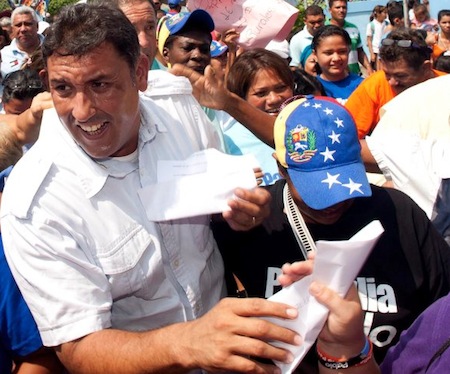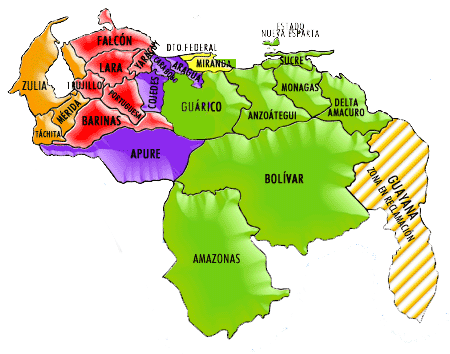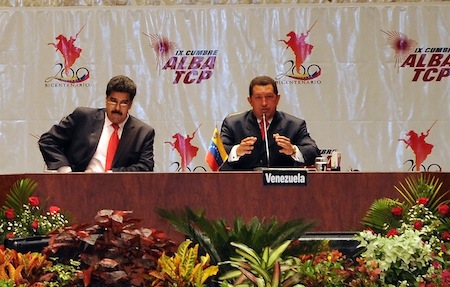What’s always been so interesting about chavismo is the way that the late Venezuelan president Hugo Chávez managed to build alliances both with just about every leader in Latin America, no matter how radical or moderate, while also building close alliances with a ‘who’s who’ of world rogue leaders on poor terms with the United States of America.![]()
It makes for an interesting set of photos from Chávez’s funeral — the photo above comes from the Facebook feed of Enrique Peña Nieto, the president of México, a country that’s had relatively little use for Venezuela over the past 14 years — former president Felipe Calderón used Chávez as a boogeyman in the 2006 Mexican presidential election to warn voters against the one-time leftist frontrunner, former Mexican City mayor Andrés Manuel López Obrador, and that may have made the difference in that election.
Chávez died Tuesday in Caracas after a long fight with cancer, suddenly bringing to life Venezuelan politics that had largely been frozen in waiting on Chávez’s health since his 11-point reelection in October 2012.
Peña Nieto was expected to move Mexican relations closer to Venezuela than under the more right-wing Calderón, but Peña Nieto and Chávez were hardly best friends. That relationship was part and parcel of the diverse set of relationships that Chávez had with the rest of Latin America — sometimes ally, sometimes foil, sometimes donor and often, all three simultaneously. Those relationships, all of which are on display this week in Caracas, give us a rough sense of whether chavismo — and the broader form of the populist, socialist left that has been on the rise in Latin America (though not necessarily in its largest, most economically successful, countries like México and Brazil) — will live beyond Chávez.
Peña Nieto is in the fourth row, standing between businessman Ricardo Martinelli, Panama’s conservative president to his left and Peruvian president Ollanta Humala to his right. Humala, who won a very close election in 2011 in Perú, was feared as a potential chavista radical leftist, anathema to Peru’s business elite, despite renouncing a chavista-style government in Perú. In fact, Humala has turned out to govern as a business-friendly moderate, garnering relatively more criticism from environmentalists and social activists on the left since his election.
There in the front row, you can see Iran’s president Mahmoud Ahmadinejad, Cuba’s president Raúl Castro (who has the distinction of belonging to both the ‘rogue state’ and ‘Latin American’ groups), the new ‘acting’ first lady of Venezuela Cilia Flores, and her husband, acting president Nicolás Maduro. Continue reading World leaders descend upon Chávez funeral: one photo, but mil palabras






